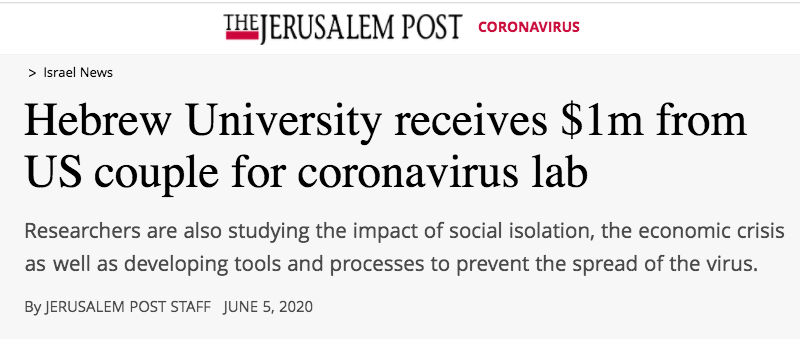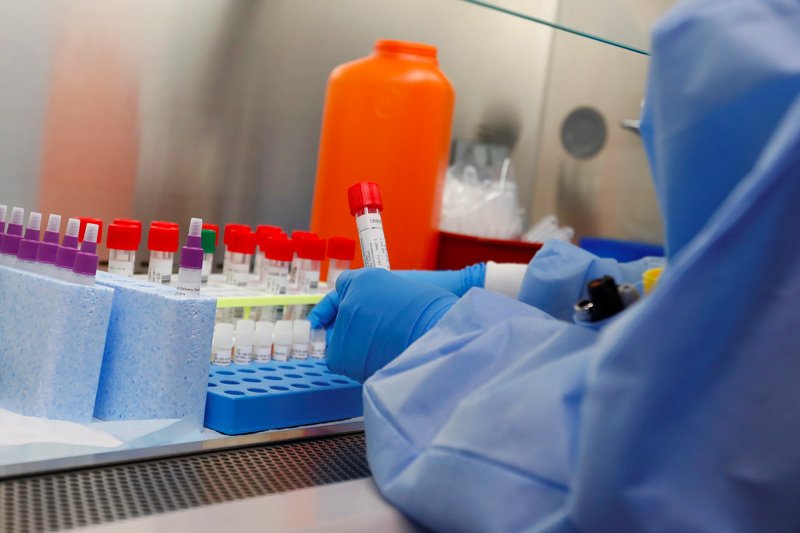

A Virginia couple has donated $1 million to assist the Hebrew University of Jerusalem in its new program designated to fight the coronavirus.
The $1 million made by Brad and Sheryl Schwartz through American Friends of Hebrew University (AFHU) will assist in building a top-level bio-safety lab, the first of its kind dedicated to non-governmental research. The donation is a major first step toward funding a biocontainment level 3 national laboratory, which will enable direct-contact research with the live virus, rather than virus components used in current labs.
“By building a BSL-3 facility, Hebrew University will be able to continue engaging in cutting-edge research to develop solutions to lethal or infectious diseases such as SARS-CoV-2. This is important for the biotech industry, Israel and the world,” said Sheryl.

The projected cost for this lab, which will feature low air pressure, filtration systems, custom protective gear and an animal research wing is over $5 million. The $1 million gift is part of nearly $14 million pledged so far for the Coronavirus Research Fund at Hebrew University, including $9.5 million raised by AFHU.
Money donated to the fund will fund a project aimed at investigating the full structure of the virus by combining computational and genetic engineering strategies to test individual components and identify those that strongly stimulate an immune cell response.
“Hebrew University researchers, faculty and students alike, are working relentlessly in this fight and have already produced significant breakthroughs, such as a new testing model, new delivery methods for medicine and diagnostic insights,” said Clive Kabatznik, AFHU’s board president.
Researchers are also studying the impact of social isolation, the economic crisis as well as developing tools and processes to prevent the spread of the virus, according to Kabatznik.
Researchers investigating the full structure of the virus stands in contrast to other labs around the world which are only focusing on the “spike” protein of the virus, according to Asher Cohen, president of The Hebrew University of Jerusalem.
“Our scientists are taking a broader, and more innovative approach,” Cohen said. In order to investigate the the virus’s full structure, the university’s lab needs “a state-of-the-art computational facility, advanced imaging systems and robotic systems to handle many samples in parallel,” he added.
“We are grateful to our US partners who are helping equip our researchers. This much-needed infrastructure will greatly advance computational medicine in the post-coronavirus era,” Cohen said.
“In order to increase our understanding of the virus and develop a plan of attack we need highly secured laboratories where people can work without being infected,” said Dina Ben Yehuda, dean of the Hadassah-Hebrew University School Of Medicine.
She added that the labs will be equipped to fight future pandemics. “It’s very important that these studies not end when everything settles down.”
The university’s coronavirus response program marshals academics in microbiology, immunology, epidemiology, nanotechnology, computer science, chemistry and physics all in the race for the vaccine, treatments and knowledge to stem the disease.